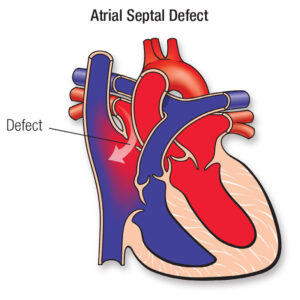Description
Gastrointestinal Oncology
Gastrointestinal (GI) oncology focuses on diagnosing and treating cancers of the digestive system, from the esophagus to the rectum. Here’s a breakdown of key aspects:
Treatment:
Treatment plans for GI cancers are highly individualized, often combining various approaches:
- Surgery: The mainstay for many GI cancers, ranging from minimally invasive laparoscopic procedures to traditional open surgeries. Options include removal of the affected organ (stomach, colon, etc.) or a portion of it, and often involve removing nearby lymph nodes.
- Endoscopic mucosal resection (EMR): An option for very early-stage cancers, where a polyp or small tumor is removed with an endoscope (a thin, lighted tube inserted through the mouth or rectum).
- Radiation therapy: Uses high-energy X-rays to target and destroy cancer cells. Can be delivered externally or internally (brachytherapy).
- Chemotherapy: Employs powerful drugs to kill cancer cells throughout the body, often used before or after surgery.
- Targeted therapy: Newer drugs that target specific mutations or pathways driving the cancer’s growth.
- Immunotherapy: Boosts the immune system to recognize and attack cancer cells.
Procedures:
Specific procedures depend on the type and stage of cancer. Here are some examples:
- Esophagectomy: Removal of part or all of the esophagus for esophageal cancer.
- Gastrectomy: Removal of part or all of the stomach for stomach cancer.
- Colectomy: Removal of part or all of the colon for colon cancer.
- Whipple procedure (pancreaticoduodenectomy): Complex surgery to remove the head of the pancreas, part of the small intestine, bile duct, and gallbladder for pancreatic cancer.
- Liver resection: Removal of a portion of the liver for liver cancer.
Who is Suitable?
The suitability for a specific treatment depends on several factors:
- Type and stage of cancer: Early-stage cancers might be treated with surgery alone, while advanced stages might involve combinations of treatments.
- Overall health: Underlying medical conditions can influence treatment choices.
- Age and individual preferences: Younger patients might tolerate certain treatments better, and individual preferences regarding potential side effects are an important factor.
Who is Not Suitable?
Certain treatments might not be suitable for patients with:
- Severe underlying health conditions that pose significant surgical risk.
- Advanced cancer stages where curative options are limited.
- Specific patient preferences outweighing potential benefits of certain treatments.
Advantages:
- Potential for cure: Early-stage GI cancers often have good cure rates with surgery or a combination of treatments.
- Improved quality of life: Treatment can alleviate symptoms like pain, bleeding, or difficulty swallowing.
- Advancements in technology: Minimally invasive surgeries and targeted therapies offer less-invasive and potentially more effective options.
- Preserving organ function: Whenever possible, surgeries aim to preserve as much of the digestive system as possible.
Complications:
The specific complications depend on the type of treatment and the patient’s health. Here are some general possibilities:
- Surgery: Infection, bleeding, pain, leakage from the surgical site, nutritional deficiencies (depending on the surgery).
- Radiation therapy: Fatigue, skin irritation, nausea, vomiting, diarrhea (depending on the radiation field).
- Chemotherapy: Fatigue, nausea, vomiting, hair loss, increased risk of infection.
Preoperative Care:
- Comprehensive medical evaluation to assess overall health and suitability for surgery.
- Imaging tests to pinpoint the tumor location and size.
- Blood tests to check organ function.
- Education and discussion about the surgery, potential risks, and recovery process.
- Nutritional counseling to optimize nutritional status before surgery.
Postoperative Care:
- Pain management with medication.
- Physical therapy to regain strength and mobility.
- Monitoring for signs of infection.
- Dietary adjustments to aid digestion and manage potential side effects.
- Follow-up appointments to monitor recovery and check for recurrence.
- Management of potential long-term side effects like bowel dysfunction or nutritional deficiencies.





Reviews
There are no reviews yet.